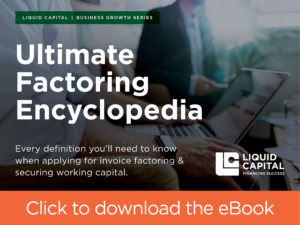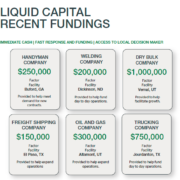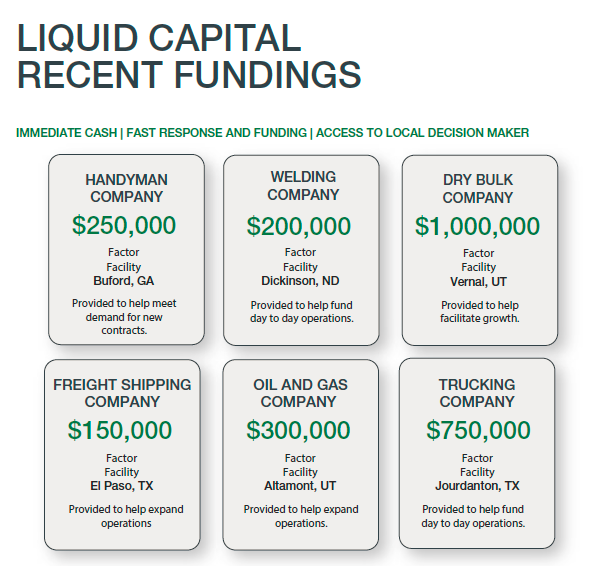COVID-19 Client update: Health and safety is top priority while Liquid Capital remains open for funding
COVID-19 update: Liquid Capital will continue to provide businesses with access to much-needed working capital.
Amidst the global COVID-19 pandemic, we are first and foremost concerned about the health and safety of all our clients, colleagues, referral partners, lending partners, and loved ones — and hope that you are safe and well supported.
Your business health and the continued operation of your organization is also vital. Our team is working diligently to continue to provide ongoing funding. Small and medium-sized businesses are the foundation of the North American economy, and we will partner together to get through this.
As new and unexpected business challenges arise, having reliable access to working capital will no doubt be a crucial part of your planning and strategies in the coming weeks and months. Liquid Capital and its affiliates are well-capitalized, and our goal is to maintain ongoing operations without disruption so that you can receive fundings as needed.
Our Liquid Capital group, including the back-office and underwriting teams, will be making use of remote tools and communication methods wherever possible. As new funding applications come in, the team will process these in the order they arrive and as quickly as possible.
If you need business cash flow support, please reach out by email or phone at your convenience. We can provide information and the available options for you to access alternative financing when you need it most.









